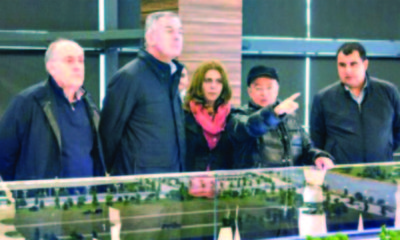IN ENGLISH
A notorious example of “independent“ Montenegrin judiciary: How Prva Bank snatched €12.5 million from Knezevic via Azerbaijani minister
Objavljeno prije
7 godinana
Objavio:
Monitor online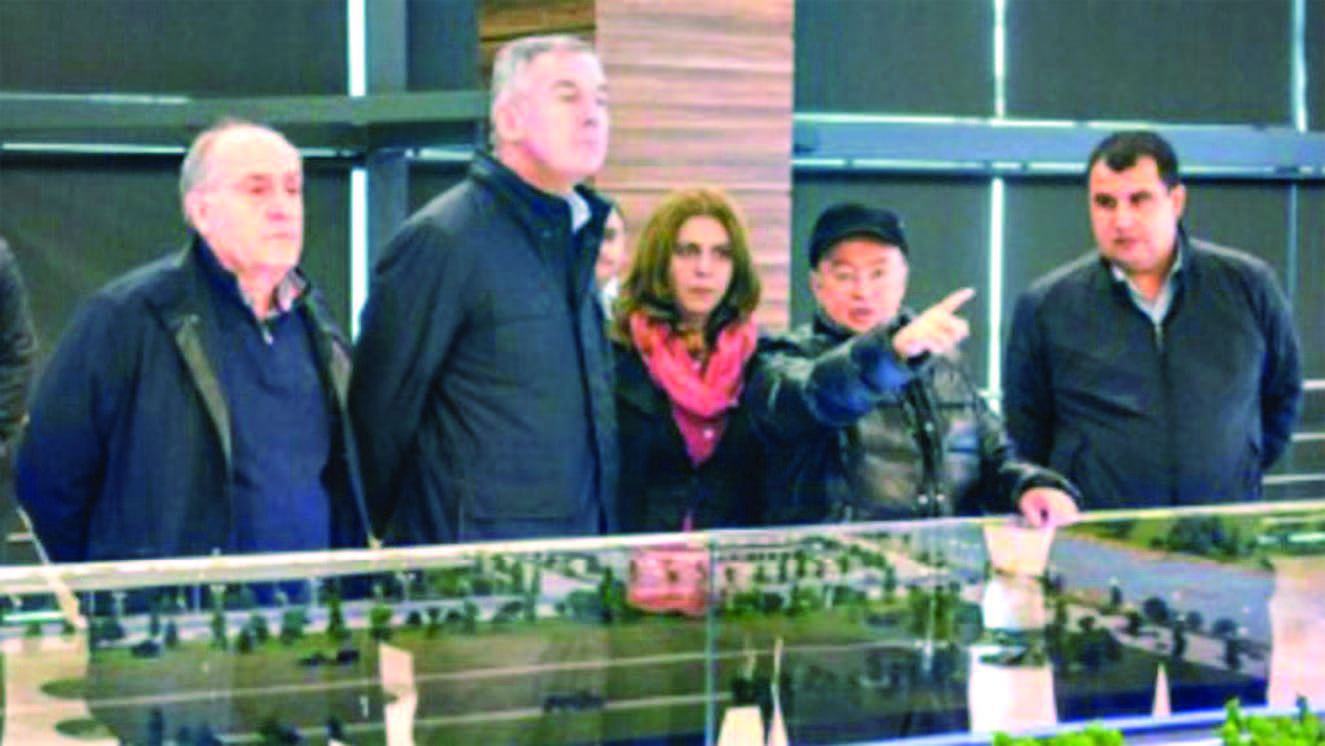
Despite the lack of clear evidence that Caspia delivered the services for which Atlas Bank was expected to pay €12.5 million, the Montenegrin courts ruled in favour of Kaspia, a company linked to the family of powerful Azerbaijani minister Khamaladin Heydarov. President Djukanovic met Heydarov several times whereas Heydarov’s company name pops us in the context of the case of murdered Maltese journalist Daphne Caruana Galizia.
Montenegro’s strongman Milo Djukanovic met Kamaladdin Heydarov, powerful Azerbaijan’s emergency affairs minister in Oct 2105. The contents of the meeting remain veiled. Prime Minister Djukanovic was accompanied by then minister of economy Vladimir Kavaric, then minister of sustainable development and tourism Branimir Gvozdenovic, Djukanovic’s chief political advisor Milan Rocen and Djukanovic’s advisor for energy and industrial development Ranko Milovic.
The information service of Azerbaijan’s government reported that Heydarov and then Prime Minister Djukanovic talked about their experience in managing emergency situations. On the other hand Djukanovic’s press service reported that he had met the Gilan company representatives there to discuss cooperation related to winter tourism and food production, Heydarov also being present.
Gilan Holdings is one of the most successful Azerbaijani companies. Gilan was founded by Heydarov in the 80s and later he handed it over to his sons when he joined the government.
However, it was recently reported, as a part of the Daphne Project, that daughters of President Ilham Aliyev have a share in the company too, whereas Heydarov is often used as a shell for the property of Aliyev who ranks the wealthiest in the country.
According to the US diplomatic documents leaked in 2010, Heydarov made his “enormous wealth“ while he was heading the State Customs Committee “which was notoriously corrupt even by Azerbaijani standards“.
Heydarov is also known as “the minister of all important things“.
Although Montenegro’s economy did not benefit from the visit, that which followed brought emergency situation to some in Montenegro.
Caspia Property Holdings of the sons of minister Heydarov, Tale and Nijat, sued Atlas Bank of Dusko Knezevic claiming that Knezevic owed the company €12.5 million.
Caspia was arguing before the Commercial Court of Montenegro that the disputed amount was based on the alleged bank guarantee. On the other hand, Knezevic has argued that the guarantee was never issued but only a draft thereof so to launch talks about possible bussines. Furthermore, Knezevic claims that the lawsuit was a scheme to enrich those who had orchestrated the whole thing.
In his recent interview with A1 TV Knezevic said that “the money was transferred to Prva Bank of the Djukanovic brothers in the joint operation via the president of Commercial Court Blazo Jovanic“. They were Knezevic’s longtime friends with whom he was doing business adhering to the rules of the Montenegrin Octopus set up by Djukanovic. However, he parted ways with them recently.
Caspia Property Holdings is mentioned in the context of investigation of the murder of Maltese journalist Daphne Karuana Galizia. Before she was murdered she was investigating the businesses of the ruling Azerbaijani families and their accounts in Malta’s Pilatus Bank. She was killed by car bomb in Oct 2017.
The Daphne Project is carried out by many investigative reporters who are keen to continue Daphe’s investigations. They found out that the children of the two most powerful officials in Azerbaijan– President Aliyev and his minister Heydarov, used dozens of offshore companies as covers for investments in luxury real estates, companies and top hotels across Europe and the Middle East. Montenegro is one of those places.
According to the Montenegrin Central Register of Business Entities (CRPS), a couple of months after Djukanovic’s visit to Azerbaijan and his meeting with Mr Heydarov, in Jan 2016, a company was founded in Budva. It was registered as hotel business-Caspia Tourism. Behind it stood a chain of offshore companies which are related to the Heydarov family. The executive of the Budva-based company is certain Esad Puskar, a US citizen.
The reporters who are a part of the Daphne Project wrote that “their secrets were hidden in the files of Pilatus Bank in Malta, which is now under investigation for money laundering“. The foreign media reported that Pilatus Bank’s murky businesses in Malta were first revealed by the bank’s former employee Maria Efimova who met Daphne Galizia in early 2017.
Daphne soon published that Aliyev’s eldest daughter Leyla transferred a million euros from the account in Pilatus Bank via her offshore companies to the offshore company owned by the wife of Joseph Muscat, the prime minister of Malta. She also reported that the main bank’s client was Khamaladin Heydarov and that he had several accounts in the bank which are registered in various companies which are remotely owned by Heydarov himself. The journalist was killed six months later. The investigators haven’t solved the case. The motives and masterminds of the crime remain unknown.
However, speaking of the local turf, the documents show that Knezevic did talk with Azerbaijanis about possible business projects in 2014 after Montenegro’s Djukanovic led authorities established business relations with Azerbaijani companies which embarked on big projects on the seacoast.
Nevertheless, many things have remained unclear and unveiled after controversial two year long battle in court launched by the Azerbaijanis. Thus it’s still unresolved whether the project of Caspia and Atlas Bank has even been carried out. Had it been completed on the part of the Azerbaijanies it would have justified the court’s ruling in their favour thus calling upon the guarantee issued by the bank. However, Knezevic claims that the business with the Azerbaijanis didn’t happen at all.
The Montenegrin courts reached entirely different verdicts based on the very same evidence. Thus Zoran Asanin, a judge of the Commercial Court was certain, based on his first verdict, that the bank guarantee was problematic and not to be called upon.
“The court has concluded that the said bank guarantee does not contain all the key elements pursuant to the International Chamber of Commerce Uniform Rules, therefore the said guarantee cannot constitute a valid bank guarantee“ said the court in Nov 2016 in its ruling which favoured Atlas Bank.
Judge Asanin stated in the same verdict that the plaintiff, Caspia Property Holdings, did not prove that it had carried out the work on account of which the guarantee could be called upon.
The Appellate Court chamber headed by judge Marija Marinkovic reversed the verdict and ordered retrial. After that, judge Asanin completely changed his mind.
Besides other things, the Appellate Court criticised Asanin for not having heard Dusko Knezevic about the alleged business deal which was the cause of the guarantee. Asanin was also criticised for examining the bank guarantee’s validity from the standpoint of international rules.
So, Asanin next time ruled in favour of Caspia and his verdict was readily upheld by the Appellate Court and its judge Ramo Strikovic. Judge Strikovic also rejected the motion of Knezevic to take part in the hearing as one of the parties in the lawsuit.
In the retrial, when judge Asanin changed his mood, it was stated that a part of the money was paid in cash to Knezevic for his share in Princess Hotel in Bar. However there is no clear evidence that the transaction ever happened while the business registry of the Commercial Court doesn’t show Caspia as the hotel’s co-owner. Furthermore, the Caspia owners were not heard in the court.
The Appellate Court’s judge Strikovic upheld the new verdict of the Commercial Court stating that it didn’t matter whether the business deal had been carried out or not. “Whether the parties adhered to the contract and to what extent is of no significance to resolve the lawsuit. This same applies to the defendant’s allegations that payments of €8… and €4… were made not by the plaintiff but by third parties and that those (payments) were not related to the (contested) Contract“ – so it is stated in the ruling of June 2018.
“The Appellate Court adhered to the reasoning of the Commercial Court and failed to heed the civil procedure violations and to review all the matters of relevance. Motions for new evidence were suppressed, including the motion to hear the real owners of Caspia Property Holdings- Tale and Nijat Heydarov, and their father- minister of emergency affairs in the government of Azerbaijan and owner of Azerbaijan’s Gilan Holdings. He visited Montenegro and talked about potential investments in the projects of Atlas Group. Later, he unilaterally pulled out. The Appellate Court and the Commercial Court rejected the motion to hear Knezevic and to order financial audit“ said Igor Martinovic, a lawyer of Atlas Group. He announced that he would address the Supreme Court over the matter.
The money was expressly transferred to Caspia’a account with Prva Bank of the Djukanovic brothers even before all legal remedies were exhausted.
“We submitted complaint to the Commercial Court on 16 July and asked to postpone the enforcement of ruling. The Commercial Court did accept our request to abort the enforcement“ explains Martinovic. However, the money was transferred to Prva Bank despite everything. “We were expecting that the judicial officer would return the money back to Atlas Bank. That didn’t happen“ ended Martinovic.
Maybe we’ll find out one day if those €12.5 million helped the Djukanovic brothers to improve their solvency if we ever get the national authorities which will rather pay heed to the law than bend the knee before their autocratic boss.
Milena PEROVIĆ-KORAĆ
Komentari
IN ENGLISH
GRENELL’S (UN)OFFICIAL VISIT TO WESTERN BALKANS: Backroom Deals in Montenegro Again
Objavljeno prije
5 mjesecina
18 Augusta, 2025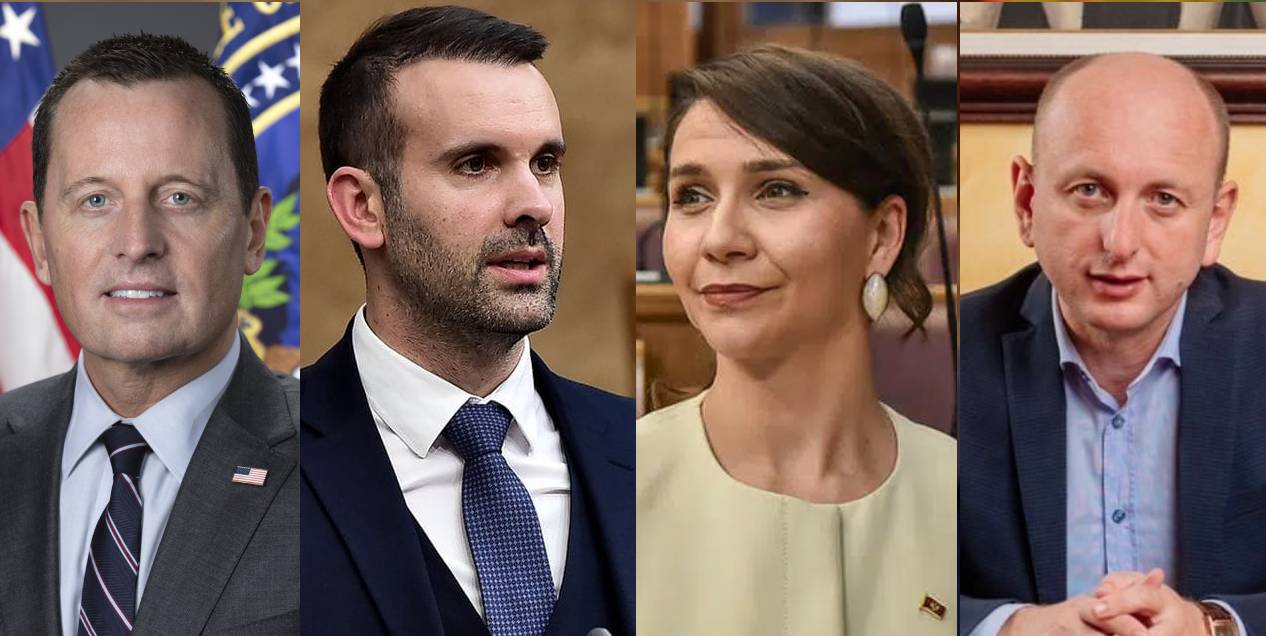
Richard Grenell, former U.S. envoy for the Serbia–Kosovo dialogue and once a powerful figure in Donald Trump’s first administration, reappeared in the Balkans this August on what was labeled an “unofficial visit.” His meetings and media appearances, however, looked suspiciously like an improvised diplomatic tour. Still, regional interlocutors who interacted with Grenell during his visit say that his vocabulary and tone sounded like that of an envoy on official mission, though he never formally claimed such a role. He even hinted, indirectly, that next year he would be back in a far more powerful position — effectively pitching himself
Last Thursday afternoon, Antena M reported that Milorad Dodik, the recently convicted president of Republika Srpska (RS), met with U.S. special presidential envoy Richard Grenell at the One and Only hotel in Portonovi, Montenegro. While authorities in Banja Luka did not confirm the meeting, it was notable that a rally organised by Dodik’s party (the Independent Social Democrats), originally planned as a protest related to his court verdict, was abruptly canceled. Antena M further reported that an unnamed Republican congresswoman was present at the meeting. No Montenegrin officials were involved or played any role in organising the encounter at the resort near the city of Herbage Novi.
However, Monitor received information, which could not be independently verified, suggesting that Grenell also met with Montenegro’s Prime Minister Milojko Spajic and Minister Majda Adzovic on the same day. Allegedly, discussions were uncomfortable and centred around recent turbulence related to airport concession deals in Montenegro. Officials close to the prime minister denied that any such meeting took place, while Minister Adzovic did not answer inquiries.
Earlier, on July 19, Nik Gjeljoshaj who simultaneously serves as Deputy Prime Minister, Economic Development Minister, and chair of the commission overseeing airport concessions informed the public that he had met with Grenell in Washington. In a statement from the U.S., he expressed gratitude to Grenell as “a great friend of the Balkan countries,” and requested support for the country’s accession toward European Union and stronger ties with the United States. During his U.S. visit, Gjeljoshaj claimed to have met in an official capacity with the FBI Director and his “senior leadership team.” Discussions were said to revolve around “the essential importance of upholding the rule of law to attract investments from Western countries and the U.S.” However, the Government publicly denied sending him and said that Gjeloshaj traveled to the U.S. privately. The Deputy PM did not provide any photographic evidence of these meetings. Before his trip, Mr Gjeloshaj was visibly dissatisfied with the tender outcome and the failure of the U.S.–Luxembourg bidder for the airport concessions that he was in favour of.
The day after the Portonovi meeting with Dodik, borba.me reported that on the evening of August 8 “in one Montenegrin coastal town”, Milan Knezevic, the leader of the Democratic People’s Party (DNP) met with Grenell. The meeting reportedly lasted nearly two hours, marked by open dialogue and exchange of of views.
The portal, considered an informal outlet of the pro-Serbia and pro-Russia “For the Future of Montenegro” (ZBCG) coalition, reported that Knezevic “detailed to Grenell the current political situation” – including internal relations in the government and various security, economic and international challenges. The interlocutors agreed “to continue communication and exchange of experiences,” with a prospect of a follow-up meeting in the future .
After departing Montenegro, Grenell continued on to Croatia. He shared on Instagram a photo of him posing with friends in the old town of Dubrovnik. The same day the Kosovar portal Gazeta Express reported that during his stay in the Western Balkans, Grenell met with Shkëlqim Devolli, a shareholder of the prestigious Devolli Corporation, founded by his father Ibrahim Devolli. Shkëlqim Devolli is a regular visitor to the U.S., often seen with influential figures like Republican senators Roger Wicker and Ted Cruz, Texas Governor Greg Abbott, and CIA Director John Ratcliffe.
Gazeta Express highlighted that the main topic of discussion was “stimulating economic growth in Kosovo through foreign investment.” It also noted that Grenell “confirmed the Trump administration’s continued commitment to supporting Kosovo and the Western Balkans,” thus promoting peace, stability, and prosperity. Just like with Knezevic and borba.me, the Gazeta Express account carries an official-sounding narrative, with the identical promise that the parties will “continue the dialogue and explore concrete ways to implement joint projects that would bring sustainable economic benefits and strengthen U.S.–Kosovo relations.” Although the location of the meeting was not disclosed, according to Monitor’s information, Grenell visited the Albanian seacoast prior to coming to Montenegro. In Albania he held a series of meetings with government officials and gave an interview to Klan Kosova – published on August 9.
Allegedly, Grenell was also seen in the region with Serbian Minister of Finance Sinisa Mali. It’s worth recalling that at the end of October 2023, Serbian President Aleksandar Vucic awarded Grenell the Order of the Serbian Flag, First Degree, for “outstanding merits in developing and strengthening peaceful cooperation and friendly relations between Serbia and the United States.” A similar decoration had been awarded to him by Kosovo three years earlier.
Still, the meetings with Albanian officials were not publicized—partly due to uncertainty over Grenell’s status, as he is on poor terms with key figures in President Trump’s administration—Secretary of State Marco Rubio and Trump’s chief of staff Susie Wiles. Grenell’s great influence during Trump’s first mandate is a thing of the past, at least for now, according to U.S. press reports. His actual job at this moment is acting director of the John F. Kennedy Center for the Performing Arts.
Regional interlocutors who were in Grenell’s circle during the visits say his vocabulary sounded as if he were on an official mission, even though he never formally said so. He also indirectly suggested that next year he would hold a significantly higher position than now, thus pitching himself in the region.
When asked whether Grenell was acting in an official capacity in Montenegro and whether it had mediated the meeting with Dodik, the U.S. Embassy in Podgorica referred Monitor to the State Department’s European desk. After the same inquiry, the State Department replied that Monitor should contact Grenell’s office directly. No response arrived prior to this publication. Unofficially, Washington sources told Monitor that the State Department had nothing to do with Grenell’s regional visit and that he was acting as a “freelance”.
Regardless of Grenell’s current status or his career’ trajectory, a big question remains as to how prepared Montenegro is for increasingly unpredictable international relations. So far, bilateral relations between Spajic’s government and the United States have not been impressive. A week ago, U.S. Secretary of State Rubio received Serbian Foreign Minister Marko Djuric—formerly Serbia’s ambassador in Washington, who built a strong Serbian caucus in the U.S. Congress. Rubio announced a “strategic dialogue with Serbia” for the end of the year. This is a process the State Department often carries out to strengthen bilateral relations. It entails high-level discussions on a wide spectrum of topics—defence, security, energy. Djuric emphasized that Serbia requested U.S. government support for issues important to Belgrade, and that his trip to Washington was significant for repositioning Serbia with the new administration. There’s no doubt that Montenegro is on Serbia’s top priorities list.
From the Montenegrin side, however, the current ambassador to the U.S. and the government seem largely indifferent to the disappearance of the Montenegrin caucus and show little effort in building strong ties with Trump’s administration. Previous head of mission in Washington, Nebojsa Todorovic, repeatedly briefed the government and foreign ministry well before the presidential elections that Trump’s return was inevitable and to prepare for it. Even President Jakov Milatovic’s visit to Ohio for the NATO Parliamentary Assembly meeting in Dayton (23-26 May), to mark 30 years of the Dayton Peace Agreement, was poorly prepared. Neither the embassy nor the foreign ministry knew that the U.S. state delegation would only be present on the first day in Dayton. Only thanks to intervention by the former ambassador did Milatovic’s delegation arrive a day earlier. That paved the way for Milatovic’s meeting with Deputy Secretary of State Christopher Landau—which, at such a gathering and outside the capital, carried considerable significance. Similar mistakes by the foreign ministry, ambassadors, and chargés d’affaires have also occurred in European capitals, with serious oversights about dates and availability of European officials.
The lack of serious diplomatic effort and narrow party interests could cost Montenegro dearly. Neighbouring countries, more skilled in lobbying, may shrewdly exploit this for their own interests—which are often at the expense of Montenegrin interests.
Jovo MARTINOVIĆ
Komentari
IN ENGLISH
Government Summons Ambassadors for Consultations and Instructions: A Foreign Policy Tightrope
Objavljeno prije
9 mjesecina
12 Aprila, 2025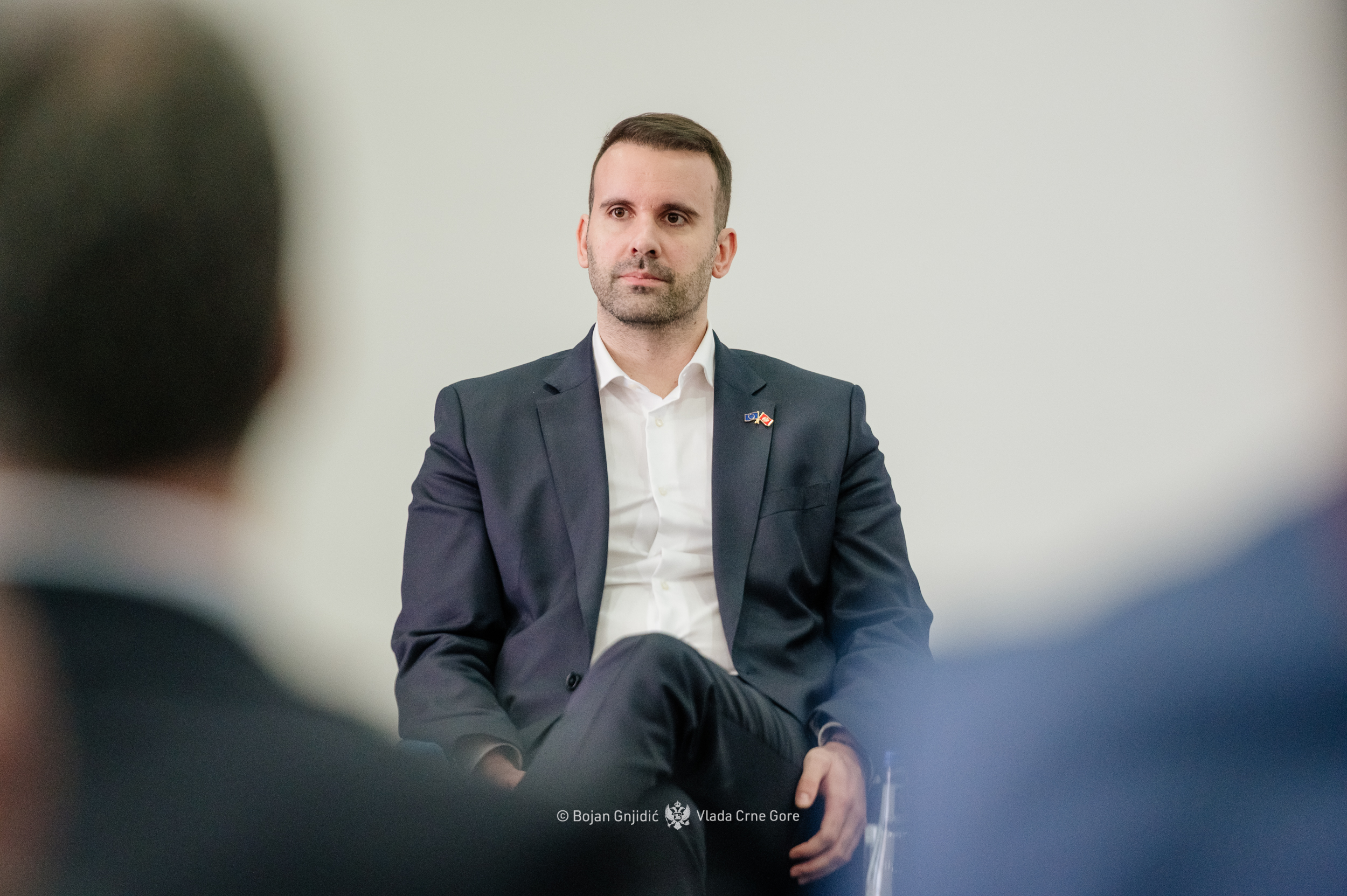
Prime Minister Milojko Spajic recently held a series of individual meetings with Montenegrin ambassadors—from Ukraine to Europe to the United States. Informal sources within the government say that during these meetings, the Prime Minister outlined a new geopolitical landscape shaped by Donald Trump’s return to power in the U.S. and evolving dynamics with the European Union
At the end of February, the Ministry of Foreign Affairs (MFA), led by Minister Ervin Ibrahimovic, summoned nearly all Montenegrin ambassadors stationed in Europe and the U.S. for urgent consultations, set to begin on March 6. The move sparked anxiety among some diplomats, who feared a repeat of the events of November 15, 2024, when three ambassadors were abruptly dismissed.
Monitor finds out that Spajić met separately with key diplomats, including Ukraine-based Borjanka Simicevic and U.S.-based Jovan Mirkovic. However, the concerns of mass dismissals proved unfounded. Instead, sources say the Prime Minister emphasized Montenegro’s continued commitment to the EU and instructed ambassadors to maintain a clear, pro-European stance. At the same time, he advised them against making any public criticisms of the United States or commenting on current rifts between the U.S. and its European allies.
Montenegro’s calibrated position became evident on March 11 at a meeting of top European military officials in Paris, where strategies for supporting Ukraine were discussed following Washington’s announcement of a suspension in military aid. The U.S. was not invited to the Parish meeting as the European leaders were keen to show they could step up independently if needed. Though an AP report initially stated that only Montenegro and Croatia, among NATO’s European members, failed to respond to the invitation, the Prime Minister’s Security and Defense Advisor, Todor Goranovic, told Radio Free Europe (RFE) that Montenegro would indeed participate. However, only the deputy military representative to NATO in Brussels attended because “Chief of General Staff Zoran Lazarevic was officially visiting Bulgaria at the time” – Goranovic explained.
Meanwhile, dissatisfaction is growing within Montenegro’s ruling coalition over Ambassador Mirkovic’s performance (or the lack thereof) in Washington. Tensions reportedly flared after a mid-February meeting with U.S. officials where he suggested that the fall of Serbian President Aleksandar Vucic could weaken some of his Montenegrin puppets. The details of the aforesaid meeting could not be independently confirmed. The subsequent report sent to Podgorica reportedly angered Spajic’s coalition partners from the former Democratic Front (DF). Although the DF was not directly mentioned in the report, its officials saw themselves as being referred to by the ambassador. One of them even retorted that those remarks would be a ground for the ambassador’s recall.
Discontent also emerged from the opposite ideological camp. Metropolitan Boris of the Montenegrin Orthodox Church (MOC) sent a protest letter to Minister Ibrahimovic, complaining that the embassy in Washington did not engage with the MOC delegation during their visit. The embassy, he wrote, failed to meet with them or assist in organizing meetings with U.S. officials. Furthermore, Metropolitan Boris complained that the embassy was “ignorant of some names and institutions that we wanted to reach out to”. He directly blamed the ambassador for the embassy’s dismissive stance.
As Monitor has previously reported, the embassy in Washington is increasingly out of sync with developments in the U.S. The once-prominent Montenegrin Caucus in Congress, which boasted 42 members under former ambassador Srdjan Darmanovic, has effectively dissolved. It’s now reduced to a single member—Congresswoman Chellie Pingree from Maine. Darmanovic had successfully lobbied to counter opposition to Montenegro’s NATO membership, despite concerns over ties of the Djukanović government with foreign criminal networks and Russian intelligence services.
Pingree reportedly sent multiple letters to the embassy criticizing the lack of engagement, but received no response. Monitor also reached out to her office twice for comment but had not received a reply at the time of publication.
Diplomatic affairs aren’t running smoothly in Europe either. In late January, the government approved the appointment of 14 new ambassadors. The list was coordinated with President Jakov Milatovic, whose signature is required for the appointments. Opposition parties and members of the pro-Serbian bloc raised objections, particularly over the inclusion of figures associated with the long-ruling Democratic Party of Socialists (DPS) and former foreign minister Milan Rocen.
One such appointee is Dragana Radulović, a longtime diplomat and former advisor to Prime Minister Dusko Markovic. She was posted to New York as Montenegro’s representative to the UN. She has been in diplomacy since 2000. Internal sources indicate that Veljko Milonjic initially hoped for the post in New York but was instead sent to Warsaw. Milonjic is remembered for his involvement in the so-called “cocaine affair” of 2015 when he was the head of Montenegro’s consulate in Munich. A truck from Munich carrying drugs under diplomatic seal was intercepted at the Austrian border. Though the Ministry of Foreign Affairs denied direct involvement, the incident cast a long shadow. Milonjic denied wrongdoing but was quietly recalled while the Consulate General in Munich was closed down. Milonjic was later appointed to a senior diplomatic post despite the scandal never being prosecuted. The truck driver, Sasha Mugosha, was sentenced to six years in prison. He was released after serving two and a half years and deported to Montenegro.
In March, the government announced that former German Bundestag member Holger Haibach had been appointed as a senior special advisor to Prime Minister Spajic, beginning January 1. Haibach will advise on regional relations in the Western Balkans and support EU accession efforts. His services will be funded by Germany’s Center for International Peace Operations (ZIF). While Haibach’s selection followed a public hiring process, sources in the diplomatic community question his current influence in Berlin. Haibach, a former CDU member of parliament, left office in 2011. Meanwhile, Veljko Kustrov, a Herzegovinian with close ties to Spajic, is considered his main point of contact in Germany.
Perhaps the most controversial diplomatic appointment so far is that of Dusanka Jeknic, a figure from the 1990s linked to the Djukanovic regime and repeatedly associated with cigarette smuggling. However, the Italian prosecutors could not present sufficient evidence against her in court. Jeknic was assigned to the embassy in Turkey after President Milatovic purchased property from her in Podgorica. Milatovic later claimed he had not been consulted on her appointment, stating that such decisions were under the MFA’s jurisdiction. He emphasized that his property purchase had been properly reported to Montenegro’s Agency for the Prevention of Corruption.
Previously, Milatovic had criticized the appointment of Predrag Drecun to lead Montenegro’s Investment Development Fund because of his close ties to the Djukanovic regime.
Montenegro is yet to drive a long and bumpy road before it gets a professional diplomatic network.
Jovo MARTINOVIĆ
Komentari
IN ENGLISH
TWILIGHT OF MONTENEGRIN INTERESTS IN AMERICA: Prayer Breakfast Instead of Real Diplomacy
Objavljeno prije
9 mjesecina
12 Aprila, 2025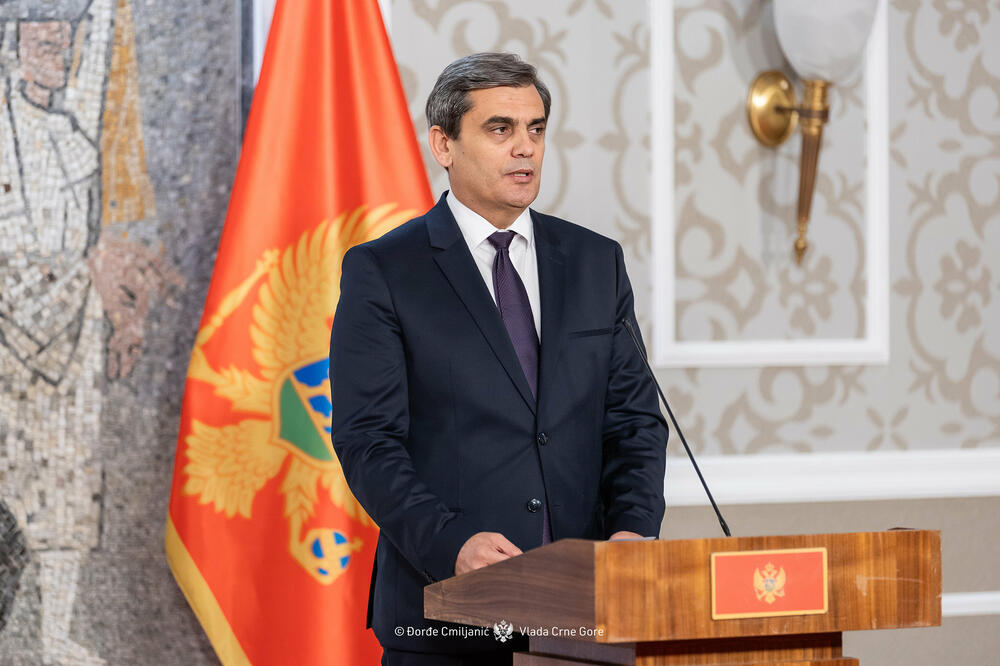
Aside from occasional trips and engagements with diaspora organizations, Montenegro shows little sign of having a coherent lobbying strategy in the United States. With the retirement of Congressman Doug Lamborn, the Montenegrin Congressional Caucus has dwindled to just one representative: Congresswoman Chellie Pingree from Maine
The 73rd annual National Prayer Breakfast in Washington recently took place, drawing more than three thousand leaders and prominent figures from politics and civil society from around the globe. Over the course of two days, participants had opportunities to network and exchange ideas at the Hilton Hotel, under the official patronage of the U.S. President.
Invitations were extended to a broad range of Montenegrin officials, including Prime Minister Milojko Spajic, Foreign Minister Ervin Ibrahimovic, Deputy Prime Minister for Economic Policy Nik Djeljoshaj, Minister of Urban Planning Slaven Radunovic, Minister of Transport Maja Vukicevic, and Minister for Human and Minority Rights Fatmir Djeka. Parliamentary invitees included many MPs, both from the opposition and the majority. Former President Milo Djukanovic and his close aide Branimir Gvozdenovic received invitations as well as several other ex officials. Also in attendance was Vijesti columnist and co-founder Zeljko Ivanovic—reportedly the only one whose travel wasn’t funded by taxpayers.
Branimir Gvozdenovic is often featured in pro-DPS (Democratic Party of Socialists) media as a regional liaison for the Prayer Breakfast. However, his name is absent from the official records of the event’s organizing foundation. Meanwhile, the Montenegrin delegation was accompanied by support staff including security, administrative personnel, and translators — necessary, since only Minister Vukicevic speaks fluent English. Translation was required for Djukanovic, Gvozdenovic and most MPs.
The cost of attending the Prayer Breakfast—including registration fees, three nights in a hotel, airfare, and daily allowances (currently €112 per day) — typically totals around $3,000 per person. When accompanying staff is added, the total bill reaches into the tens of thousands of euros. Out of the entire group, only Ministers Ibrahimović and Djeka were scheduled for official meetings at the U.S. State Department.
Minister for the Diaspora Adem Azemovic, representing the Bosniak Party, made his second trip to the U.S. in a month, accompanied by two associates. In late December, he met with Naser Nika, head of the Albanian-American Association of Staten Island. After the New Year he returned to meet him again. When asked why a second meeting was necessary, the Ministry explained that the first encounter had been brief, and the second was based on an official invitation. The association, which includes Albanian Montenegrins living in Staten Island, was praised for promoting Montenegro in New York.
Azemovic also visited the New York State Assembly, which is reportedly considering hosting Montenegro’s Independence Day celebration. His office described this as an opportunity to mark one of the country’s most significant holidays in a high-profile setting. Interestingly, Montenegro’s Independence Day was already celebrated at New York City Hall on May 23, 2024, in an event organized by the Albanian-American Association of Ulcinj. That celebration included Montenegro’s Consul Amer Cikotic and the Association’s president Dzelal Lanica. Nika had publicly criticized the event on Facebook, claiming that it misrepresented interethnic relations in Montenegro and highlighted Serbian political influence via Serbian President Vucic-backed factions.
Despite these diaspora engagements, there is little to suggest that Montenegro has any serious lobbying efforts in Washington—particularly with key decision-makers. Nebojsa Medojevic, leader of the Movement for Change (PZP), remarked that “Montenegro simply failed to grasp the magnitude and significance of political changes occurring in the U.S.”
“The current ambassador —Professor Jovan Mirković is openly anti-Trump and a personal ally of Aco and Milo Djukanovic” Medojević stated. “He has no meaningful contacts in Washington and no ideological alignment with the current direction of U.S. politics, so it’s unclear who or what he’s even representing.” He went on to question the competence and professionalism of the current government’s foreign policy team.
Interestingly, Nebojsa Todorovic, the former chargé d’affaires in Washington, had warned the Ministry of Foreign Affairs (MFA) and the government in late 2023 to prepare for a potential return of Donald Trump.
Since arriving in Washington in mid-September, Ambassador Mirkovic has maintained a notably low profile. His biography reveals he spent several years in Russia during the early 1990s—the same period when Milan Rocen was serving as minister-counselor at the Yugoslav embassy. Sources claim that Mirkovic has family ties in Russia and is known for his longstanding loyalty to the Djukanovic regime. Neither Djukanovic nor his Democratic Party of Socialists (DPS) have ever renounced their 2011 strategic cooperation agreement with Putin’s United Russia. In fact, the DPS publicly reaffirmed its pride in these ties in Parliament last year.
With the departure of Doug Lamborn—one of the Montenegrin Caucus’s co-chairs—the group now counts only a single member: Congresswoman Chellie Pingree. Meanwhile, Serbia has been actively growing its influence. Foreign Minister Marko Djuric, a former ambassador to Washington, has built up the Serbian Caucus to nearly 40 members. Djuric even boasted that Serbia, though not a NATO member, has stronger U.S. ties than Montenegro.
Some claim that Serbia pressured Podgorica through influential regional businessmen into sending a low-impact figure to Washington. The contrast with past Montenegrin diplomacy is stark: Under Ambassador Srdjan Darmanovic, the Montenegrin Caucus had grown to 42 members, surpassing even the Albanian caucus. Darmanovic worked closely with Congressman Mike Turner to gain U.S. support for NATO accession—despite Djukanovic’s regime then-notorious links to organized crime and Russian intelligence services.
Efforts to revive the caucus were briefly relaunched by Nebojsa Todorovic, who during his stint as chargé d’affaires in 2023 helped re-engage 10 U.S. lawmakers, including Turner and other influential committee chairs such as Michael McCaul and Robert Aderholt. For a brief period, Montenegro held a unique status in the Balkans, with three Congressional committee leaders in its caucus.
However, Todorovic has since been recalled, and with him, much of Montenegro’s presence in Washington has faded again into inertia.
This raises uncomfortable questions: Is Spajic’s government reverting to the old practice of conducting diplomacy through informal channels and business networks, as seen under Djukanovic and his top advisor Rocen? At the time, oligarchs like Oleg Deripaska and other Putin loyalists were reportedly enlisted to lobby for Montenegro in the West.
That line of approach came at a steep cost to the country—and its reputation.
Jovo MARTINOVIĆ
Komentari
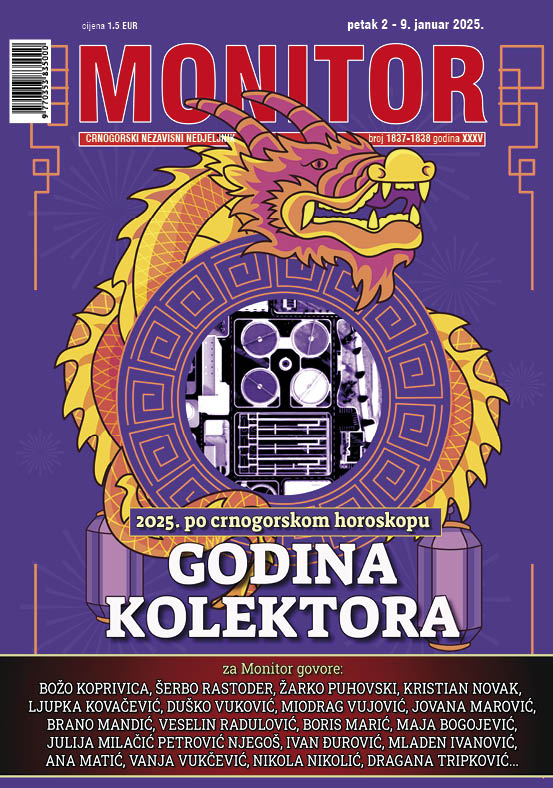


KRISTIAN NOVAK, PISAC: Književnost protiv nepovjerenja

OPŠTINA KOLAŠIN STOPIRALA UKNJIŽBU PLACEVA NA LUGU: U rukama Ustavnog suda

Novogodišnji barometar
Izdvajamo
-
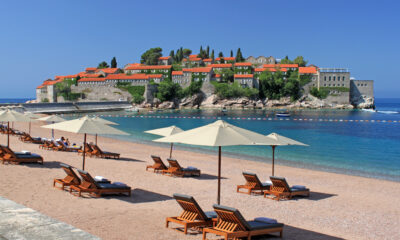
 DRUŠTVO4 sedmice
DRUŠTVO4 sedmiceZAKUP SVETOG STEFANA I MILOČERA – PARAVAN ZA GRADNJU: Planski dokumenti o izgradnji 41.000 kvadrata i dalje na snazi
-
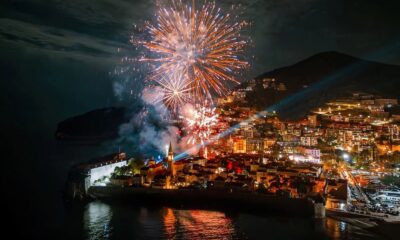
 DRUŠTVO1 sedmica
DRUŠTVO1 sedmicaDOČEK NOVE 2026. U BUDVI: Milion i po eura za sedam dana pjesme i zabave
-

 SUSRETI3 sedmice
SUSRETI3 sedmiceTIHOMIR TIKA STANIĆ, GLUMAC, „G“ VELIKO: Život ostvarenih dječačkih snova
-

 DRUŠTVO3 sedmice
DRUŠTVO3 sedmiceALARMANTNO ZAGAĐENJE VAZDUHA U PLJEVLJIMA: Kontinuitet neodgovornosti
-
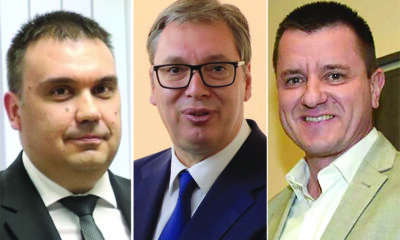
 HORIZONTI4 sedmice
HORIZONTI4 sedmiceSMJENA NAČELNIKA BIA I NOVI PRITISCI SRPSKOG SVETA NA CRNU GORU: Šef je nezadovoljan – pojačaj tempo
-

 ALTERVIZIJA4 sedmice
ALTERVIZIJA4 sedmiceSlaganje vremena
-

 INTERVJU4 sedmice
INTERVJU4 sedmiceBALŠA BRKOVIĆ, PISAC: Loša vlast kao sudbina
-

 DANAS, SJUTRA4 sedmice
DANAS, SJUTRA4 sedmice35/100


